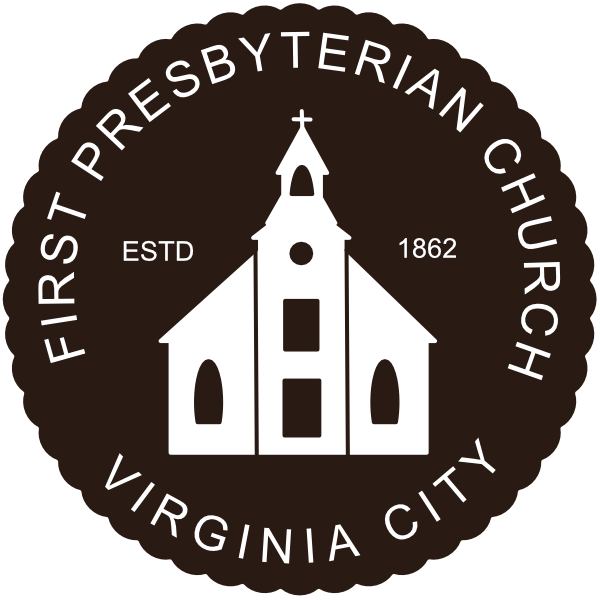
Our gospel lesson today includes yet another story of Jesus appearing following his death and resurrection. One central theme appears over and over: if you don’t have serious doubts about the Easter story, you’re not paying attention.
Think about it.
Consider the stories. Mary at the tomb. The disciples and Thomas in John’s gospel. Although all four gospels have many interesting variations in their account of Jesus’ resurrection, they are absolutely consistent on one thing: no one believes the good news of Jesus’ resurrection when they first hear it. No one. And that includes Jesus’ own disciples – his inner circle, the ones who were closest to him and spent the most time with him. In fact, that level of disbelief starts with the disciples.
Earlier in the verses before this reading, Luke tells us that the disciples dismissed the testimony of the women who had been to the empty tomb as an “idle tale.” Actually, that’s not quite right. It’s actually a water-downed translation or paraphrase. The Greek word Luke employs – leros – is the root of our word delirious. So, in response to the testimony of the women, the disciples say they are, frankly, out of their ever-loving minds.
But that’s perhaps to be expected. Let’s face it: the earth is generally unwilling to give up the dead. And testimony that it has – that one who died has actually been raised – rather upsets the natural order of things and causes you to lose confidence in pretty much everything you thought you could count on. Two things, Benjamin Franklin once wrote, are certain in this world: death and taxes. Except, according to these women, not death.
So, no wonder the disciples doubt their testimony. Except it’s not just their testimony they doubt; it’s even Jesus. That’s what’s so astounding to me about this passage. Thus far in Luke’s account, the disciples have heard and dismissed the women’s testimony, Peter then ran to the tomb and confirmed at the very least that it’s empty, two disciples on the road to Emmaus were encountered by Jesus and have returned to tell their tale, and now…wait for it…now Jesus has appeared among them and invited them to touch him to dispel any doubts they may have that he is real. And then Luke writes, “While in their joy they were disbelieving and still wondering….”
Isn’t that marvelous? That even after all this they still don’t believe. It makes you wonder what it’s going to take to finally convince them that it is indeed Jesus – in the flesh – in their midst. But they have no reference point for this, so the only logical thing they can think of is that he is a ghost – an apparition or some kind of disembodied spirit. I mean, how else did he get in through a locked and bolted door? No wonder they are scared out of their wits. No wonder they have a hard time comprehending that while he was really dead – three days dead- yet here he was standing among them. But Jesus speaks a few calming words, invites them to touch his solid form, and eats a piece of broiled fish to prove that he is no phantom. He is who he is. And then he talks to them, as reassuringly as a parent might comfort a frightened child, reminding them of all that he had taught them before.
As a result, they allow themselves to feel the joy, while still holding reservations about the miraculous reality of it all. And even after all this – – they still don’t totally believe. Luke tells us they are both joyful and disbelieving at the same time.
So here is something important that we can learn from our lesson this morning: doubt is NOT the polar opposite of faith, as some might have us believe. In fact, doubt is probably a necessary ingredient of faith. For faith, by definition, is being able to trust IN SPITE OF THE LACK OF EVIDENCE. Faith is not knowledge. Faith is not experience. Faith is rather living in the tension of acting as if something is true, even when you have no proof that it is.
So, for those of you who have had your doubts about the faith – and those of you who still do – major reservations or those little questions that creep into your brain as you are about to fall asleep, rest assured that it is OK to doubt. In fact, doubt is often a requirement or pre-requisite for faith. Because, honestly, in light of all the death and trauma and disappoint and tragedy that colors every human life, if you don’t have at least some difficulty believing the promise that God not only raised one person, Jesus, from the dead, but also promises new life and second chances and forgiveness and grace to all, then maybe you’re not paying attention.
I think we can learn from the disciples that faith not a once-and-for-all feeling of belief. Given the conditions of the human experience, faith can wax and wane, like the phases of the moon. In times of serious trial or catastrophe or heartbreak, we are likely to question God and our faith. And there is nothing wrong with that. Other times, when we experience answered prayer or something short of miraculous, our faith may feel strong. Maybe we can think of doubt as faith doing its calisthenics. And above all, just as the moon is still present even when it is not visible; likewise, God is indeed present even in, and especially in, times of doubt, just as Jesus was present in the room with the disciples who thought he was little more than a ghost.
So, if we can indeed overcome our doubts and fears, how do we go out and live as those who believe God’s promises in Jesus Christ are true? So often, I think, these promises in scripture are so familiar to us that we hold them far back in our head but don’t actually think about them and therefore, don’t act as if they are true for us. Maybe for someone else, but not for us. But – if it’s true that God raised Jesus from the dead… If it’s true that God promises to renew the whole creation and grant us new life… If it’s true that nothing – nothing we’ve done or has been done to us – can separate us – you and I- from the love of God… If it’s true that God will not turn God’s back on any of us but always reaches out to us, all of us, in grace, mercy, and forgiveness… If any of this – let alone all of this – is true, then how might we live our lives this week differently? How might this faith – not knowledge, but trusting, courageous faith – change how we look at our relationships, and our politics, and our work, and our resources, and our future?
And if takes a little time to let all this sink in, to come to active trust and faith that these promises are true, well, then let’s keep in mind that we’re in good company. Jesus’ first disciples struggled with all this as well. But once they wrestled with their doubts, and came to believe, then they were able to be transformed, to become changed men and women. And only then could they accept the challenge to be witnesses of these things.
It seems to me a witness has two functions – to see and to tell. Once they had seen, worked past their doubts and finally believed, then they could tell. Then they could be witnesses to what they had seen and heard and experienced.
Yes, they are witnesses and so are. And it is okay that most of us are quiet witnesses, one who walks more than talks about the faith. Not too long ago, an old preacher died somewhat quietly in Blue Ridge, Georgia. His name was Fred Craddock and he was well-known among preachers and a few other folks. Some years ago, he wrote a book called “Overhearing the Gospel.” He wrote about how people respond best to indirect and gentle witness, things they can observe and hear and think about on their on time and in their own way. This is what being quiet witness is about, telling the truth as you know it and nothing more.
Witnessing is the telling of personal experience, what we ourselves have seen and heard and felt. When one is a witness in a court of law, the lawyers and judges generally don’t care about your opinion about what you think might have been the motivation for what happened – no, they simply want to know what you know what you saw and what you heard. How many times on Law and Order have we heard a lawyer say, “I object, calls for a conclusion from the witness.” In witnessing, we don’t have to draw conclusion or make arguments – all we must do is tell the truth as we know it. In a Christian context, this is not just any personal experience; rather it is the story of our experience with the word of life, the Risen Christ. For us to be a witness requires simply that we be willing to tell the world about our encounters with the Living word of God in word or in deed. It is up to others to draw their conclusions in God’s own good time.
If we take nothing more from this morning’s gospel, go from here knowing that you are blessed by God today – in your doubt as well as your faith, and in your quiet witness as you live out each day in the grace and joy of God, in Jesus Christ. Thanks be to God. Amen.
